 EPSRC is holding a two-day workshop on Pervasive and Ubiquitous Computing. The workshop will be highly multidisciplinary as well as bringing together those who are developing platforms and standards with researchers deploying and evaluating in real world environments.
EPSRC is holding a two-day workshop on Pervasive and Ubiquitous Computing. The workshop will be highly multidisciplinary as well as bringing together those who are developing platforms and standards with researchers deploying and evaluating in real world environments.
In the Balancing Capability exercise, Pervasive and Ubiquitous Computing was selected as an area to grow. While this is likely to happen due to the increasing economic and social influence of the Internet of Things and related technologies, EPSRC believe that some effort is required at this stage to ensure a balanced portfolio of funded research by the end of the delivery plan period.
Moreover, while they believe this field has a key role to play in contributing to the achievement of their cross-ICT priorities, they think that to achieve the objectives described in the priorities: People at the Heart of ICT, Safe and Secure ICT and Cross-Disciplinarity and Co-Creation a mature community discussion will be required.
Further information about EPSRC‘s portfolio and strategies, see our website.
What is Pervasive and Ubiquitous Computing?
Put broadly, Pervasive and Ubiquitous Computing (PUC) is the fundamental and applied research that aims achieve the integration of computing into any device in any location that interacts with our lives.
Research in this area is necessarily multi-disciplinary and in order to achieve success will draw-on and synthesise ideas at the boundary of numerous other strands of research. This includes:
- Context awareness and affective computing in mobile systems and fundamental research into smart devices.
- Communication and information management between trillions of devices as well as new forms of distributed data handling and processing at scale.
- Research into the software or hardware of devices that have mobility as a unique aspect of their application. This includes the solutions to challenges of building systems on a grand scale such as interoperability, reliability and scalability.
Research into new forms of interaction with pervasive computer systems and related research into trust, privacy and security. This will require novel computer science and engineering while incorporating research from the social sciences, humanities and law.
How to apply
Those wishing to attend the workshop should complete the short Expression of Interest (EoI) form on this page.
This is a fantastic opportunity for BU academics as a lot of our research would be classed as ‘Pervasive and Ubiquitous Computing’. If you do get a place, please can you let your RKEO representative know as we are interested in how this area will grow and what calls may come out of it.
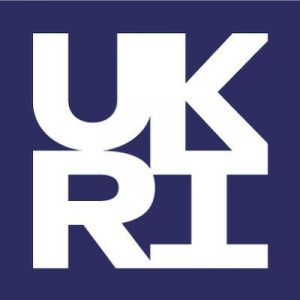
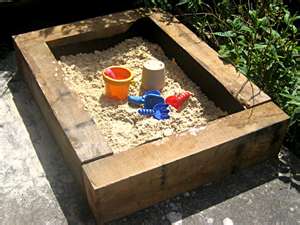
 The Engineering and Physical Sciences Research Council (EPSRC) has
The Engineering and Physical Sciences Research Council (EPSRC) has  EPSRC is
EPSRC is 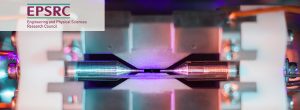 Today sees the launch of Engineering and Physical Sciences Research Council’s new
Today sees the launch of Engineering and Physical Sciences Research Council’s new 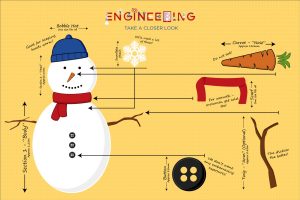 In support of the 2018 Year of Engineering, a year-long government led (Department of Transport) campaign to celebrate UK engineering and increase awareness and understand what engineers do, EPSRC have created a ‘fun’
In support of the 2018 Year of Engineering, a year-long government led (Department of Transport) campaign to celebrate UK engineering and increase awareness and understand what engineers do, EPSRC have created a ‘fun’ 
 The Japan Society for the Promotion of Science is Japan’s leading funding agency and is largely funded through annual subsidies from the Japanese Ministry of Education, Culture, Sports, Science and Technology (MEXT). JSPS administers a number of bilateral and multilateral programmes for scientific cooperation and exchange under memorandums of understanding concluded with its various counterpart foreign academic institutions around the world.
The Japan Society for the Promotion of Science is Japan’s leading funding agency and is largely funded through annual subsidies from the Japanese Ministry of Education, Culture, Sports, Science and Technology (MEXT). JSPS administers a number of bilateral and multilateral programmes for scientific cooperation and exchange under memorandums of understanding concluded with its various counterpart foreign academic institutions around the world.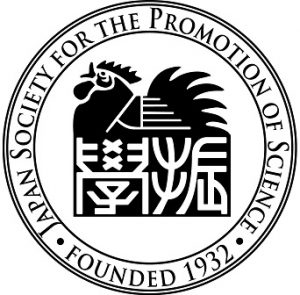 For more information about the EPSRC application procedure please read the
For more information about the EPSRC application procedure please read the  The Engineering and Physical Sciences Research Council (EPSRC) has published further diversity data related to peer review. This extension of data for Equality, Diversity and Inclusion (E,D&I) will highlight the progress made to date to improve diversity in their peer review process, and the opportunities to continue to work with their communities to make further improvements. Please
The Engineering and Physical Sciences Research Council (EPSRC) has published further diversity data related to peer review. This extension of data for Equality, Diversity and Inclusion (E,D&I) will highlight the progress made to date to improve diversity in their peer review process, and the opportunities to continue to work with their communities to make further improvements. Please 











 Beyond Academia: Exploring Career Options for Early Career Researchers – Online Workshop
Beyond Academia: Exploring Career Options for Early Career Researchers – Online Workshop UKCGE Recognised Research Supervision Programme: Deadline Approaching
UKCGE Recognised Research Supervision Programme: Deadline Approaching SPROUT: From Sustainable Research to Sustainable Research Lives
SPROUT: From Sustainable Research to Sustainable Research Lives BRIAN upgrade and new look
BRIAN upgrade and new look Seeing the fruits of your labour in Bangladesh
Seeing the fruits of your labour in Bangladesh ECR Funding Open Call: Research Culture & Community Grant – Apply now
ECR Funding Open Call: Research Culture & Community Grant – Apply now ECR Funding Open Call: Research Culture & Community Grant – Application Deadline Friday 12 December
ECR Funding Open Call: Research Culture & Community Grant – Application Deadline Friday 12 December MSCA Postdoctoral Fellowships 2025 Call
MSCA Postdoctoral Fellowships 2025 Call ERC Advanced Grant 2025 Webinar
ERC Advanced Grant 2025 Webinar Update on UKRO services
Update on UKRO services European research project exploring use of ‘virtual twins’ to better manage metabolic associated fatty liver disease
European research project exploring use of ‘virtual twins’ to better manage metabolic associated fatty liver disease